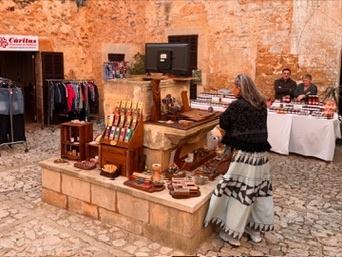What are the advantages of using local limestone in Mallorcan home construction?
Similar Topics
local limestone
mallorcan home construction
natural porous limestone
mediterranean landscape
limestone durability
thermal mass
sustainable building
traditional craftsmanship
Using local limestone in Mallorcan home construction offers several important advantages, both practical and aesthetic. This traditional building material has been quarried on the island for centuries, making it well adapted to the local climate and environment. Limestone's natural porous structure helps regulate indoor humidity, which is particularly valuable in Mallorcan homes where temperatures can be high in summer and cooler in winter. This inherent breathability creates a more comfortable living environment and reduces the need for artificial climate control.
Additionally, the warm, earthy hues of local limestone blend harmoniously with Mallorca’s Mediterranean landscape, lending homes a sense of timelessness and authenticity. The stone ages gracefully over time, developing a patina that enhances the character and charm of buildings. Beyond aesthetics, limestone is durable and requires minimal maintenance, standing up well to the coastal elements and occasional heavy rain. Its thermal mass also helps to keep interiors cool during hot days by absorbing heat slowly, which is an energy-efficient feature particularly suited to the island’s climate.
The use of stone sourced directly from Mallorca reduces transportation costs and the environmental impact associated with importing materials, supporting local economies and sustainable building practices. Moreover, the traditional craftsmanship involved in working with limestone often preserves cultural heritage, as local stonemasons use time-honored techniques to cut, shape, and lay the stone. In sum, the use of Mallorcan limestone in home construction combines environmental suitability, aesthetic appeal, and cultural significance, making it a preferred choice for both contemporary and restoration projects across the island.
Additionally, the warm, earthy hues of local limestone blend harmoniously with Mallorca’s Mediterranean landscape, lending homes a sense of timelessness and authenticity. The stone ages gracefully over time, developing a patina that enhances the character and charm of buildings. Beyond aesthetics, limestone is durable and requires minimal maintenance, standing up well to the coastal elements and occasional heavy rain. Its thermal mass also helps to keep interiors cool during hot days by absorbing heat slowly, which is an energy-efficient feature particularly suited to the island’s climate.
The use of stone sourced directly from Mallorca reduces transportation costs and the environmental impact associated with importing materials, supporting local economies and sustainable building practices. Moreover, the traditional craftsmanship involved in working with limestone often preserves cultural heritage, as local stonemasons use time-honored techniques to cut, shape, and lay the stone. In sum, the use of Mallorcan limestone in home construction combines environmental suitability, aesthetic appeal, and cultural significance, making it a preferred choice for both contemporary and restoration projects across the island.
🧩 Related Questions
Related Question
Do hotels or restaurants in Valldemossa and Deia typically provide parking facilities for guests or customers?
Related Question
What kind of activities typically accompany the Sant Antoni celebrations in Mallorca's churches?
Related Question
What efforts are being made to preserve the stone walls as part of Mallorca’s cultural heritage?

